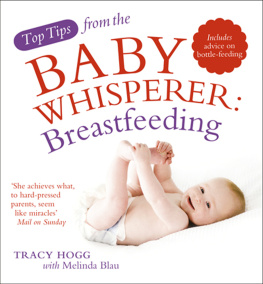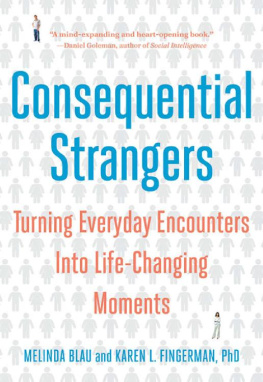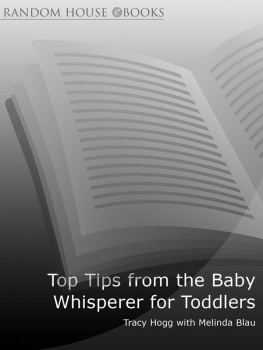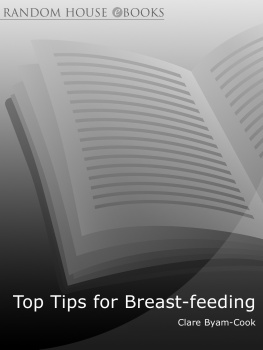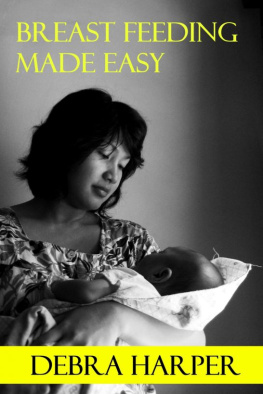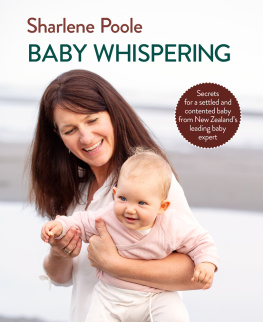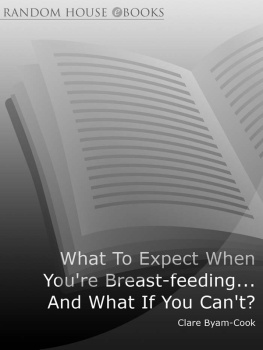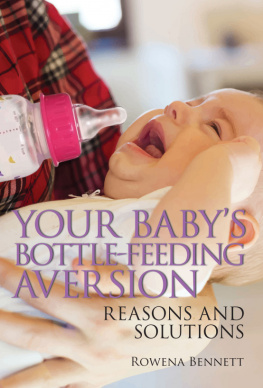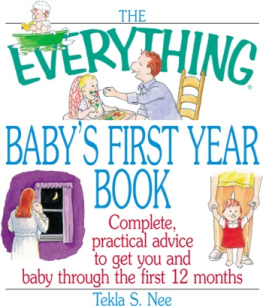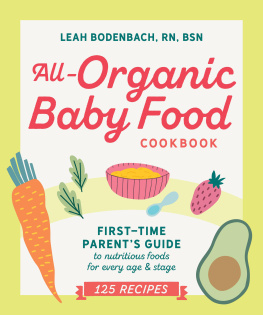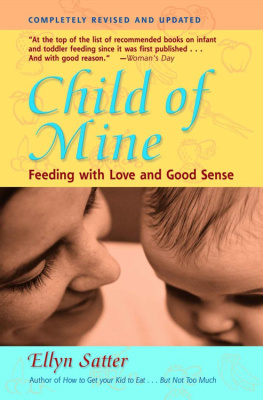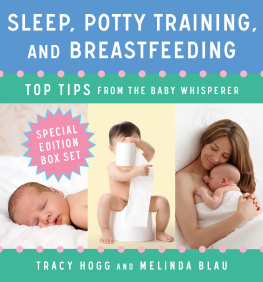This ebook is copyright material and must not be copied, reproduced, transferred, distributed, leased, licensed or publicly performed or used in any way except as specifically permitted in writing by the publishers, as allowed under the terms and conditions under which it was purchased or as strictly permitted by applicable copyright law. Any unauthorised distribution or use of this text may be a direct infringement of the authors and publishers rights and those responsible may be liable in law accordingly.
Version 1.0
Epub ISBN 9781448118380
www.randomhouse.co.uk
1 3 5 7 9 10 8 6 4 2
Published in 2010 by Vermilion, an imprint of Ebury Publishing
Ebury Publishing is a Random House Group company
Copyright Tracy Hogg and Melinda Blau 2005
Tracy Hogg and Melinda Blau have asserted their right to be identified as the authors of this work in accordance with the Copyright, Designs and Patents Act 1988.
All rights reserved. No part of this publication may be reproduced, stored in a retrieval system, or transmitted in any form or by any means, electronic, mechanical, photocopying, recording or otherwise, without the prior permission of the copyright owner.
The Random House Group Limited Reg. No. 954009
Addresses for companies within the Random House Group can be found at www.rbooks.co.uk
A CIP catalogue record for this book is available from the British Library
ISBN 9780091929732
Text previously published in The Baby Whisperer Solves All Your Problems
To buy books by your favourite authors and register for offers, visit www.rbooks.co.uk
The information given in this book should not be treated as a substitute for qualified medical advice; always consult a medical practitioner. Neither the authors nor the publisher can be held responsible for any loss or claim arising out of the use, or misuse, of the suggestions made or the failure to take medical advice.
Contents
Getting Your Baby on a Structured Routine
Feeding Issues in the First Six Months
The First Six Weeks
Painful Feeds
Six Weeks to Six Months
Four to Six Months
Solid Foods
Breast to Bottle/Bottle to Cup
Six to Twelve Months
One to Two Years
Two to Three Years
About the Author
The late Tracy Hogg trained at Great Ormond Street Hospital and continued her education in midwifery and caring for newborns at St James Hospital in Leeds and St Catherines Hospital, Doncaster. She migrated to the US in 1993 where her uncanny ability to understand and calm babies led to her nickname The Baby Whisperer.
Melinda Blau is an award-winning writer specialising in family and health topics. She is the author of seven other books and countless magazine articles and is the mother of two grown-up children.
About the Book
How do I know if my baby is getting enough to eat? How often do I feed her? How can I tell if shes hungry?
There are many issues that surround breast- or bottle-feeding and the introduction of solid foods to your baby, and it can be a major cause of anxiety for many parents. Even the lucky ones, whose babies latch onto the breast easily or happily move from a liquid diet to solid foods, have initial concerns over ensuring their baby is getting adequate nourishment.
Tracy Hoggs incredible sensitivity and ability to read infants cries, coos and assorted baby noises quickly earned her the admiration and gratitude of high-profile couples, including a host of celebrities. With reassuring, down-to-earth advice, her practical feeding programme will help you overcome your babys feeding issues and works with infants from as young as a day old.
A lifesaver for any busy parent.
Introduction
I have always been proud of my ability to help parents understand and care for their young children, and feel honoured whenever a family asks me into its life. During this time, on my website and in my email inbox, Ive been inundated with requests for help: maybe a parent is confused about why their child isnt doing what other children are doing; or maybe theyre faced with a deeply entrenched feeding difficulty. Of course, every young child and every family is slightly different. When parents come to me with a particular challenge, I always ask at least one, if not a string of questions, both about the child and about what parents have done so far in response to their situation. Then I can come up with a proper plan of action. In this book, then, I want to show you how to empower yourself as a parent. My goal is to help you understand my thought process and get you in the habit of asking questions for yourself.
Tuning In
Baby whispering begins by observing, respecting and communicating with your baby. It means that you see your child for who she really is her personality and her particular quirks (we all have them) and you tailor your parenting strategies accordingly.
How often have I witnessed a scene like this: a mother says to her little boy, Now Billy, you dont want Adams truck. Poor little Billy doesnt talk yet, but if he did Id bet hed say, Sure I do, Mum. Why else do you think I grabbed it away from Adam in the first place? But Mum doesnt listen to him. She either takes the truck out of Billys hand or tries to coax him into relinquishing it willingly. At that point I can almost count the seconds until meltdown!
Dont get me wrong, Im not saying that just because Billy wants the truck he should be allowed to bully Adam far from it. What I am saying is that we need to listen to our children, even when they say things we dont want to hear.
Those same skills observing body language, listening to cries, slowing down so that you can really figure out whats going on are just as important as your baby grows into a toddler and beyond. Those of you who know me undoubtedly recall my love of acronyms, such as E.A.S.Y. (Eat, Activity, Sleep, and time for You).
I dont think that coining a series of expressions or acronyms makes child-rearing a snap. I know first-hand that parenting is anything but E.A.S.Y. But in the midst of a tussle with your child or children, its easy to forget good advice and lapse into old patterns. So Im trying to give you tools to use when you might not have your wits about you. And heres another acronym for your parental bag of tricks.
Be a P.C. Parent
A P.C. parent is patient and conscious, two qualities that will serve you well no matter how old your child is. And its not just problems that require P.C. parenting; so do everyday interactions.
Patience. Todays Big Problem becomes a distant memory a month from now, but we tend to forget that when were living through it. It takes patience to parent well those who, in the heat of the moment, take what seems like an easier road, only find out later that it leads them to accidental parenting and a dangerous dead end.
Having a child can be messy and disorderly, too. Therefore, you also need patience (and internal fortitude) to tolerate at least the clutter, spills and finger marks. What toddler manages to drink from a real cup without first spilling pints of liquid on to the floor? Eventually, only a drizzle slips out the side of his mouth and then finally he gets most of it down, but it doesnt happen overnight or without setbacks along the way.
Consciousness. Consciousness of who your child is should begin the moment she takes her first breath outside the womb. Always be aware of your childs perspective. I mean this both figuratively and literally. Squat down and see what the world looks like from her vantage point. Take a whiff of the air. Listen. How loud is the din of the crowd? Its good to expose children to new sights, sounds and people. But, if your infant repeatedly cries in unfamiliar settings, as a conscious parent youll know that shes telling you: Try this with me in another month.

